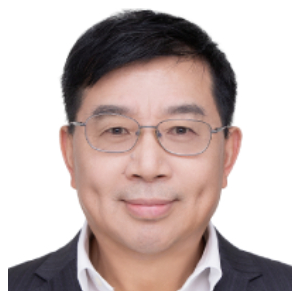
RESEARCH
From our unique vantage point in the Hong Kong SAR we enjoy the academic freedom necessary to produce world-leading and internationally acclaimed research in History. Our areas of specialist research are diverse and span a variety of fields. We have expertise in European, Asian, American and Russian history but we also specialise in thematic histories with an inter-disciplinary orientation such as health and medicine, childhood and youth, social and cultural history, gender, heritage and urban history. A key strength is our collective engagement with methodologies and approaches foregrounding international, and transnational perspectives, and histories of connections between China, and Asia more broadly and other parts of the world.

RESEARCH PROJECTS
Professor Frank Dikotter

Professor Frank Dikötter is completing a project on the history of the cult of personality in the twentieth century. This complex project spans eight different countries and the work explores this topic through eight case studies, Mussolini, Hitler, Stalin, Kim Il Sung, Mao, Duvalier, Ceausescu and Mengistu.
Dr. Staci Ford

Dr. Staci Ford is working on a project which will create a “Stories Matter Narrative Archive.” She is undertaking a series of oral history interviews with couples who are balancing careers and families. She also plans to keep an eye on singles who may have stories that inform the conversation – asking does a focus on dual careers marginalize issues singles face?
Professor David Pomfret

Currently, Professor Pomfret is working on a RGC GRF project examining trans-colonial cultures of youth in Asia from the late 19th to the mid 20th century. European society in colonial places was often strikingly young. What implications did this have? The project examines the difference that age made to colonialism and imperialism in Europe’s empires.
Dr. Oscar Sanchez-Sibony

Dr. Oscar Sanchez-Sibony is currently working out questions on the financial and international history of the Soviet Union at two disparate points of its history. The first concerns itself with the NEP era, a time when the Bolsheviks signed up to the keystone of the interwar international liberal project: the gold standard. Understanding money as a social institution and finance as a political technology, he investigates the meaning the social meaning of the economic choices the leaders of the Soviet Union made.
His second line of inquiry involves the financialization of the global economy that followed the end of the Bretton Woods system in the 1970s and its effects on the Soviet Union. Concurrent with this financialization were the oil shocks of that decade, which gave the Soviet leadership the kind of capital reserves it had longed for during its history. Oscar’s research examines what it means for a country’s foreign relations to become subject to the logic of credit and capital.
Professor Charles Schencking

Following Japan’s most deadly and destructive natural disaster—the Great Kantō Earthquake of 1923—Americans responded to Japan’s suffering with an outpouring of aid unrivalled to this day. Professor Schencking’s study explores the simple, yet poignant question: Why? Why did Americans give so much and what did they hope for in return? How was aid given and why is this case of American humanitarianism so unique? America’s Tsunami of Aid illustrates how a complex set of perceived humanitarian obligations coupled with opportunistic visions for economic and political gain defined America’s aid campaign for Japan. In doing so, it paints an entirely new picture of America’s interwar internationalism, Japanese-American relations, and of 1920s America itself. It also revolutionizes the understanding of the American Red Cross, President Calvin Coolidge, and the origins of what Professor Schencking describes as the beginnings of America’s humanitarian century abroad, 1918 to 2017.
America’s Tsunami of Aid does not look at this extraordinary “humanitarian moment” exclusively from the side of the givers. Drawing on a wealth of materials from Japanese archives, this study also explores how Japanese officials and citizens used donated cash and materials. Importantly it also documents how Japan expressed its gratitude toward Americans through a series of soft-power public relations campaigns coupled with a frenzy of economic activity within America. When completed, this study will appeal to scholars and students of American, Japanese, and Asian American history as well as those interested in humanitarianism and natural disasters. It will also appeal to the general public. Professor Schencking’s study conveys a story that will make Americans feel proud about their international philanthropic past and hopefully, encourage everyone to rethink the importance of global humanitarian engagements in an era of increasing popular nationalism.
Dr. Carol Tsang

Dr. Carol Tsang is currently completing the monograph, Better Babies: Reproduction in Modern Hong Kong, which explores a wide range of discourses about reproduction that the government, elites, obstetricians, and journalists produced and circulated in the twentieth century, a period when Hong Kong became increasingly connected with the outside world. These important groups advised women, sometimes their spouses, on how to make more and better babies, and how to control their fertility. They engineered substantial reforms by implementing policies, funding institutions, and providing free or low-cost maternal health services and contraception. On a conceptual level, her project uses oral histories, and media technologies including the newspapers, and the radio and television broadcasting to examine the production, reproduction, and transmission of knowledge about pregnancy, childbirth, and family planning. With these literary and visual representations, she aims to uncover ordinary people’s obscure past by deconstructing the dialogues between the government, educated elites, and commoners.
Professor Guoqi Xu

Professor Guoqi Xu has been focusing on sports-related topics and their impact on Chinese society. He is currently working on two book-length projects: one in Chinese about ancient sports and the idea of China, and another in English about modern sports and China. The research aims to provide a more penetrating and objective understanding of the idea of China and Chineseness through a sports perspective. Professor Xu has made significant progress in his research on ancient sports and the idea of China, while also steadily advancing his work on modern sports and China. Building on his book Olympic Dream: China and sports, 1895-2008, he has published a book with Chinese University Press of Hong Kong about the 2008 Olympic Games and beyond. He has also published several articles in Chinese and English to further his research, including papers on ping pong diplomacy and global public for sporting China. In addition to his work on Chinese society, Professor Xu is expanding his research to include sports and American society to provide a transnational and comparative perspective. This work aims to shed new light on sports in Chinese society and the idea of China.


